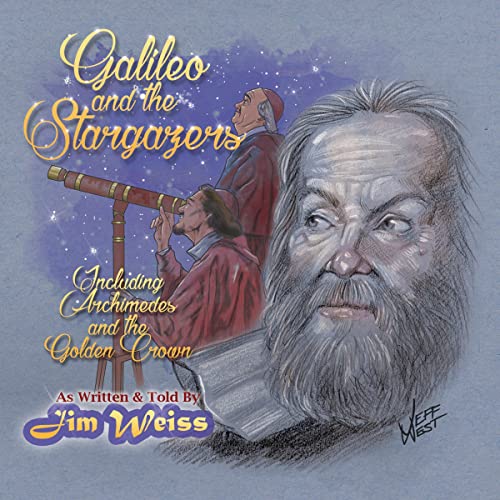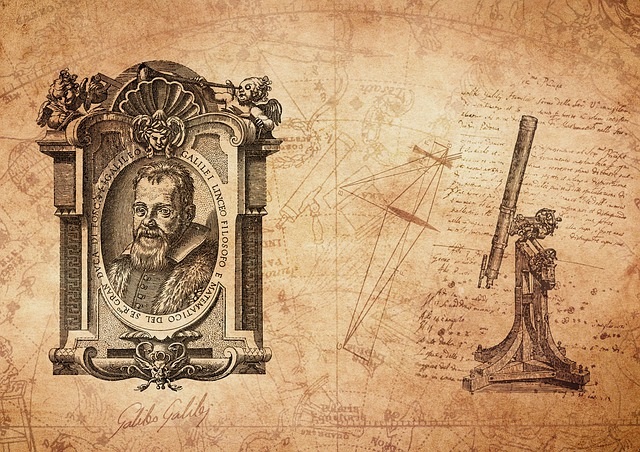Galileo is a famous historical figure and is noted for his contributions to astronomy and other areas of scientific study. Here are a few biographical notes to create a snapshot of Galileo Galilei (1564 - 1642).
Though he did not invent it, Galileo pioneered the use of the refracting telescope for observing the night sky. He improved upon the telescope and significantly enhanced its by grinding and polishing his own lenses, in order to increase the magnification, and that made it possible to actually see that there were craters and mountains on the moon and saw that the Milky Was was made up of thousands of individual stars.
"After his formal trial, which took place on May 10 of that year, Galileo was convicted of a “strong suspicion of heresy,” a lesser charge than actual heresy."
~ QUOTE SOURCE: The truth about Galileo and his conflict with the Catholic Church | UCLA
“Nearly 70 at the time of his trial, Galileo lived his last nine years under comfortable house arrest, writing a summary of his early motion experiments that became his final great scientific work. He died in Arcetri near Florence, Italy on January 8, 1642 at age 77 after suffering from heart palpitations and a fever.”
~ QUOTE SOURCE: Galileo Galilei - HISTORY
In his day, his work was deemed heresy, but these days Galileo is praised for his contributions to astronomy and is called the "father" of observational astronomy, modern physics, the scientific method, and modern science.
Galileo fathered 2 daughters out of wedlock, who both became Catholic nuns. His oldest daughter, Virginia, corresponded regularly with his father. 124 of her letters survive to this day. Unfortunately, all of Galileo's replies to his daughter were burned. Her letters create a picture of a daughter's loving and supportive relationship with her father. The daughter herself was somewhat of a radical in her day. Even though she saw what happened to her father, she still dared to take a stand against corruption in the priesthood. Galileo died in 1642, but he outlived his daughter, who died of dysentery in 1634.
Galileo and the Stargazers: The Jim Weiss Audio Collection of inspiring true stories of heroic scientists ... https://t.co/LIdAKg2rtn via @amazon @audible_com
— Treathyl Fox (aka cmoneyspinner) ~ #Freelancer (@cmoneyspinner) February 21, 2022
#16 in Historical #Biographies for Children
#21 in #Audiobooks on #Science & #Technology for #Children #education pic.twitter.com/yvUk1bGCsp




No comments:
Post a Comment
Note: Only a member of this blog may post a comment.